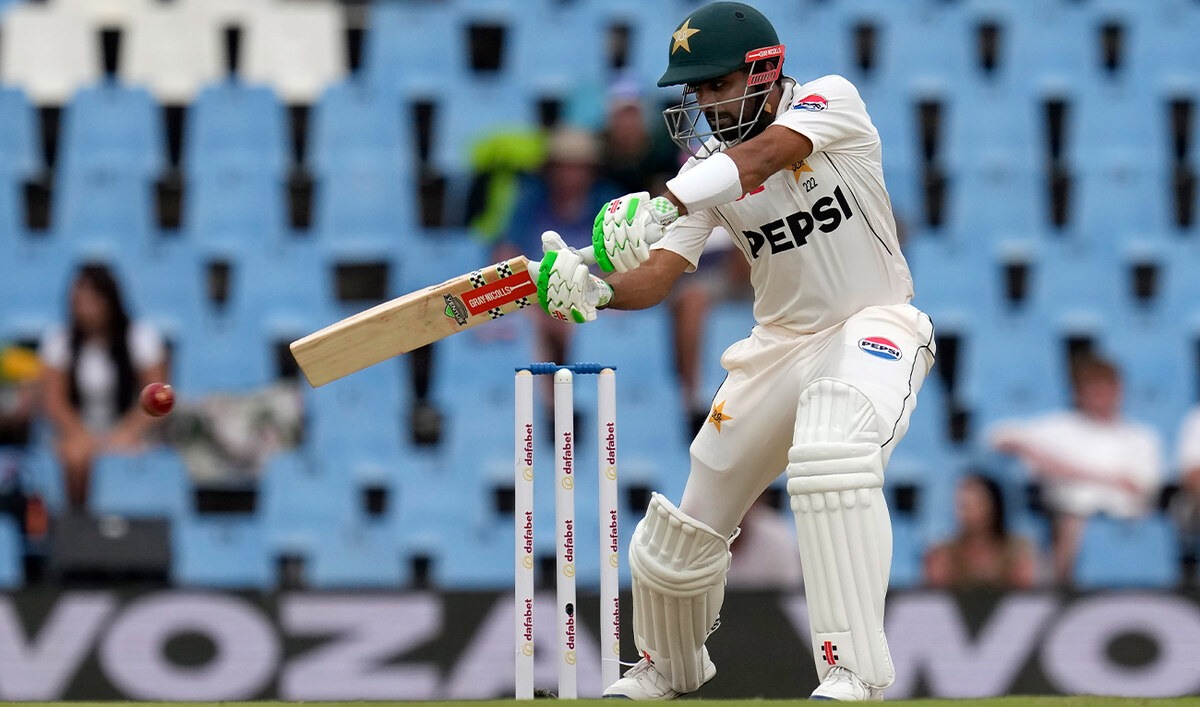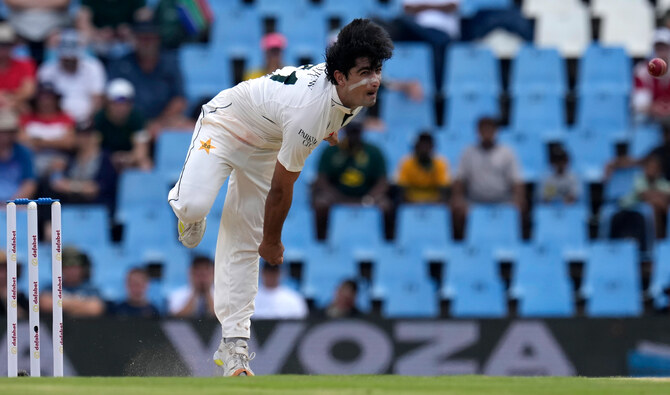RIYADH: The transfer traffic between the biggest clubs in Europe and those in Saudi Arabia has been all one way for quite some time. Cristiano Ronaldo, Karim Benzema, N’Golo Kante, Riyad Mahrez, Roberto Firmino and others have left behind past European champions to head south, but as of Tuesday morning, there was a star heading in the opposite direction as Saud Abdulhamid left Al-Hilal for AS Roma. It is a move as big as any other and a potential gamechanger for the player, the country and the wider region.
The right-back, who can play in a number of positions, had been operating at a consistently high level even before the 2022 World Cup when he was a standout for the national team. The 25-year-old was quickly linked to a move to Europe but stayed in Riyadh, where he excelled for Al-Hilal as the Blues won their 20th Saudi Pro League trophy at a canter last season. He has now become the first Saudi player to complete a permanent transfer to a club in the big leagues of Europe. This was no freebie either, as he cost the Italian giants a reported €2.5 million ($2.8 million). It is fitting that going the other way may well be — according to reports — Joao Cancelo of Manchester City.
Abdulhamid has the opportunity to become the most famous Saudi player in the world. The first challenge is to settle, the second is to actually get some playing time, the third to become a regular and the fourth to become a star. None of the above are easy; it should not be underestimated just how hard it is for a player from Saudi Arabia, and other countries in the region, to leave their homes and succeed. The differences in culture on and off the pitch are significant, which helps to explain why it has never happened in the past. Legendary striker Sami Al-Jaber had a loan with Wolverhampton Wanderers in 2000 and there were several players who spent time in Spain a few years ago, but this is different and the rewards could be significant.
Roma are a huge club with a global following, a big local fanbase and a rich history. To join the three-time Italian champions directly is a big step. Compared to a generation ago when Al-Jaber headed to England, there is more awareness and respect for Asian football around the world, but Abdulhamid will still have plenty of doubters to prove wrong. He is going to have to show what he can do but coaches who have worked with him have praised his attitude, work ethic, professionalism and desire to succeed — all qualities that will stand him in good stead.
Even if it does not go according to plan, the player returns home wiser and more experienced, but if there is any success then more can follow. For all the titles Saudi Arabia have had at both club and country level, all fans know not sending players overseas has been a weakness. This is a first step to remedying that.
Ideally, other European clubs will follow Roma’s example and other Saudi stars will get the chance to follow in Abdulhamid’s footsteps. Back in Al-Jaber’s time, Asian players were rare in Europe. Now, Japan can select an entire squad filled with European-based talent but also have a strong domestic league as a foundation. This helps explain why the country is the continent’s leading power, as sending players overseas opens up opportunities for young talent back home to get their chance.
The coach of the Green Falcons, Roberto Mancini, will be delighted that his squad, which has been one of the few entirely domestic based picks in Asia, will not only have a player based on Europe but in one of Italy’s top teams. Abdulhamid will change as a player and a person, and that will have effects on others. It did elsewhere in Asia, such as South Korea when Park Ji-sung played for Manchester United from 2005 to 2012.
“In the tunnel, Park was there. That he played for one of the biggest clubs in the world gave us confidence as we walked out onto the pitch together,” said former South Korea winger, Chung Kyung-ho. Soon, Saudi Arabian players could be saying the same thing about Saudi Abdulhamid. The exploits of Park inspired others in east Asia and helped change attitudes in western Europe.
Abdulhamid can do something similar for west Asian nations as this is not just about Saudi Arabia. As the leading football nation in the region, the player and the country can help drive progress and provide pioneers.
This is not to put too much pressure on Saud Abdulhamid. He has time on his side, and if he can shine in the Eternal City, the benefits for the player, Saudi Arabia and the wider region could be very long-lasting indeed.




























